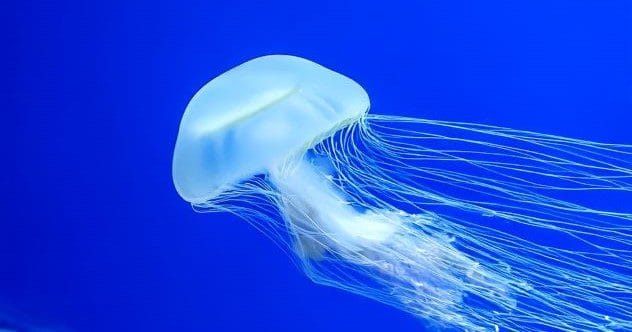The brain is often considered the most crucial organ, responsible for thoughts, memories, emotions, and vital bodily functions. It’s hard to imagine life without one, yet many creatures not only survive but flourish without a brain. Let’s dive into the fascinating world of animals that have adapted to life without this complex organ.
10. Ascidian / Sea Squirt
Sea squirts are marine invertebrates found in tropical and temperate waters. These cylindrical creatures attach to surfaces and filter water through two openings. While they possess a simple central nervous system, they lack a brain. However, their neural tube and sensory vesicle extend from where a brain might form in other animals. Interestingly, some studies suggest that including sea squirts in your diet might reverse signs of aging in the human brain.
9. Jellyfish
Jellyfish, common in coastal waters, are invertebrates without spines, bones, or muscles as we know them. They propel themselves by squirting water. Despite their simple structure, jellyfish don’t have a brain. However, research has shown that the Caribbean box jellyfish can learn from experience, proving that a brain isn’t necessary for learning; this happens in their nerve cells.
8. Sea Sponge
Sea sponges are simple aquatic animals with porous skeletons. They filter water, collect bacteria, and process carbon and nitrogen, making them an essential part of their ecosystems. Sea sponges have no brain, organs, or tissues. However, studies indicate they possess the beginning of a nervous system, with genetic components of synapses, making them valuable for studying human evolution.
7. Oyster
Oysters are a popular seafood choice, often served whole in their shells. These animals have a lifespan of up to 20 years and possess a mouth, stomach, heart, intestines, and muscles. Oysters can recognize threats and even change gender without a brain or nervous system, meaning they cannot feel pain. This fact is a point of discussion among vegetarians and vegans.
6. Nematode / Roundworm
Nematodes, or roundworms, are abundant animals found in soil, freshwater, and even inside other animals. These simple creatures are bilaterally symmetrical and hermaphroditic. They have no brain, yet they thrive in diverse environments. Researchers have found that studying nematodes can provide insights into combating brain damage in humans by exploring how neural pathways can be repaired.
5. Coquina Clam
Coquina clams are small mollusks found on beaches worldwide. They lack a brain but possess hair-like sensors connected to nerve clusters that detect wave movement. This allows them to “surf” by leaping from the sand and riding waves to richer waters. Coquina clams serve as indicator species for beach habitat health, signaling the impact of environmental changes and beach nourishment.
4. Sea Urchin
Sea urchins, with their spiky exterior, inhabit underwater environments. While they lack a brain and eyes, they respond to light through dermal photoreceptor cells distributed along their flexible appendages. This decentralized form of vision allows them to identify objects and move towards or away from them, showcasing their ability to react to visual stimuli without a central brain.
3. Sea Anemone
Sea anemones are carnivorous invertebrates found in oceans worldwide. They use tentacles to paralyze prey with neurotoxins. Despite this complexity, they lack a brain and consist of an adhesive foot and a mouth/anus with tentacles. They form symbiotic relationships with creatures like green algae and clownfish, providing shelter and sunlight exposure.
2. Starfish
Starfish, also known as sea stars, are marine invertebrates with eyes at the end of each leg. They use filtered seawater to pump nutrients through their nervous system. Although starfish don’t have a brain, recent studies suggest their body is, in fact, a head. These creatures live for an average of 35 years, showcasing their resilience.
1. Portuguese Man o’ War
The Portuguese man o’ war is a siphonophore, a colony of single-celled organisms floating on the ocean’s surface. It uses a gas-filled bladder to sail with the wind and venom-filled tentacles to paralyze prey. Lacking a brain, it operates based on wind and ocean currents, often leading it to wash up on beaches. Despite its dangerous reputation, it’s a fascinating example of brainless survival.
These ten creatures demonstrate that a brain isn’t always necessary to survive and thrive. From the sea squirt to the Portuguese man o’ war, each has developed unique adaptations to navigate the world without centralized intelligence. It’s a testament to the incredible diversity and adaptability.
What do you think about these brainless creatures? Let us know in the comments below!










